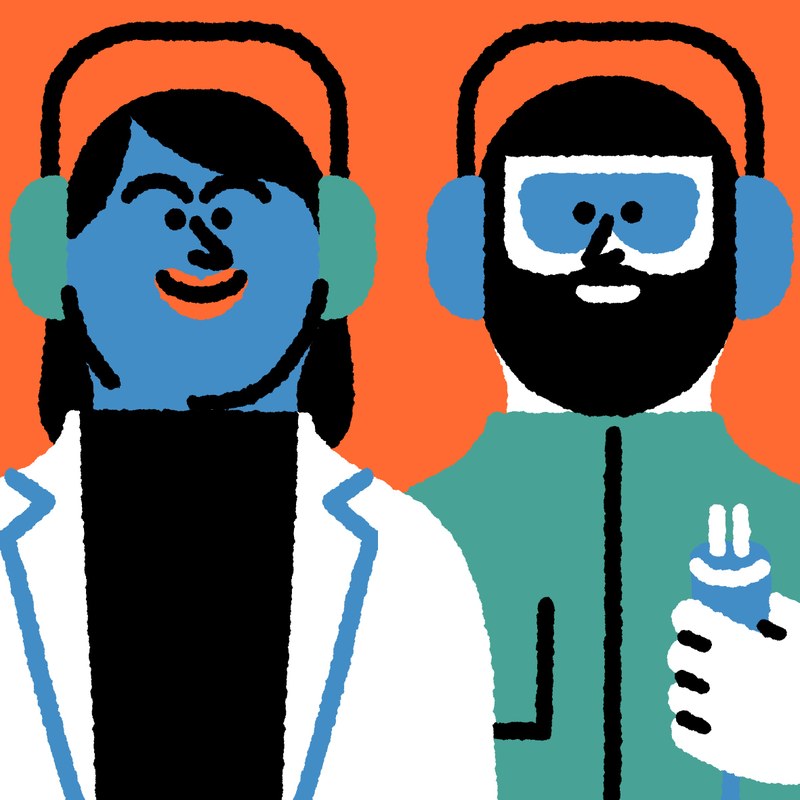Hackatons AI&Music - 23 i 24 octubre
07/10/2021
For the first time in Barcelona, Sónar and UPC will organize the AI and Music Festival, focused on the application of and challenges surrounding the use of Artificial Intelligence in musical creation. The festival is organized by Sónar, the Universitat Politécnica de Catalunya (UPC), béteve and the European Commission as part of the S+T+ARTS initiative. The festival will take on a hybrid format, with live performances, in-situ programming and online exclusives, designed and created specifically to engage with digital audiences.
AI and Music hackathons which will take place on 23 October, 12.00-20.00 CET and on 24 October, 8:00-12:00 CET for on-site participants. For online participants it will be open 24 hours.

Students can apply with already established groups of participants or individually.
Participation requirements:
-
Each team will consist of 6 participants .
-
Multidisciplinary groups (only the mixed groups profiles will be eligible to be evaluated)
-
Starting code from scratch (no pre-elaborate code is allowed)
THE AI AND MUSIC S+T+ARTS FESTIVAL
The hackathons will focus on the creation of opportunities for new approaches to musical education with the contribution of AI tools and techniques developed for composition, improvisation, autonomous intelligent musical performance, inspiration, suggestion of motifs, melodies…aiming at helping creators develop their own work.
1. EduHack: The AI & Music Educational Hack presented by Ableton will focus on the creation of opportunities for new approaches to musical education with the contribution of AI tools and techniques developed for composition, improvisation, autonomous intelligent musical performance, inspiration, suggestion of motifs, melodies… aiming at helping creators develop their own work.
Goals:
-
Exploring the link between AI and Music in education and training terms, or how we can use AI to learn and teach music and vice versa.
-
Adopting a S+T+ARTS oriented pedagogical approach, tools and methodologies.
-
Facilitating the co-creation of educational resources (ranging from methodologies to apps, systems or approaches…)
-
Creating and reinforcing the teaching and learning community around AI and Music.
Participants: Students, artists, code developers, experts in teaching and learning taking a STEAM-STARTS approach, musicians and musical pedagogues and experts in AI deployment and visualization, AI engineers and instructional designers. Skills asked for: coding, music, design, AI techniques, entrepreneurial mindset, etc.
-
Available support: Two types of mentors will be available to assist the participants during the event: Technology experts: teams will be assisted by experts in different technologies and computer language programs online and upon request. If a team has a special concern on how to develop an algorithm/language, we (at UPC) will be providing assistance.
-
Other experts: School teachers, musicians, music pedagogy teachers, AI experts will be assisting the groups both online and on site.
2-LiveCoding Hack: The AI & Music LiveCoding Hack presented by everis an NTT Data Company.
Coding is a performative technique focused on writing algorithms in real-time so that the person who writes is part of the algorithm. It is mainly used to produce music or images but it extends beyond that. Live coding community is strongly related with the artistic and scientific ones, promoting practices such as DIY and Doing with others. Currently, Al is being explored within live coding. While most early live coding performances used simplesound generators and processors, such as sine waves, filters, eto increasingly common to hear performances using machine learning to perform specific tasks such as performing with big databases. LifeCoding Hack goals:
Goals:
-
Exploring Al techniques within the live coding practice, integrating scientific, artistic and live coding communities. Developing/extending tools that allow using Al within musical live coding. Possible musical tasks could include for example: automatic material generation, navigating bast parameter spaces, collaborative human-machine interaction etc.
-
Collecting/developing the necessary tools needed to explore specific musical tasks.
-
The developed resources will be publicly available through repositories for the community. This will include manuals, audio examples and will provide CC licences for the community to build upon.
Available support:
Two types of mentors will be available to assist the participants during the event:
-
Technology experts: teams will be assisted by experts in different technologies and computer language programs online and upon request. If a team has a special concern on how to develop an algorithm/language, we (at UPC) will be providing assistance.
-
Other experts: livecoders, AI experts

Comparteix: